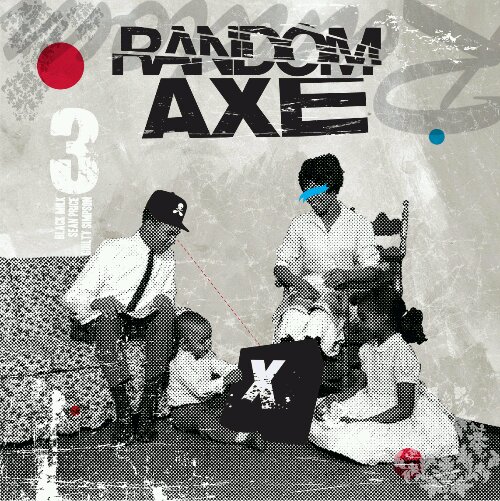
 BY MATTHEW HENGEVELD This album would have been commercially successful if it had come out during the Detroit hip-hop boom of 2009, when people were salivating for more Black Milk and anything else Detroit-related. However, Milk let this album basque in the sun, grow with age and hone-in on sculpting a quintessential “Black Milk” style. Black Milk has been sampling guitar licks and dialing down the pitch for a while now, a technique that works well for him. However, his newest release Album of the Year suffered from overproduction, uncatchy hooks and drum breaks too complex for hip-hop. Though not a travesty (it was actually a great album), Album of the Year needed a strong follow-up to solidify Black Milk as Detroit’s Alpha Dog producer in this post-Dilla landscape.
BY MATTHEW HENGEVELD This album would have been commercially successful if it had come out during the Detroit hip-hop boom of 2009, when people were salivating for more Black Milk and anything else Detroit-related. However, Milk let this album basque in the sun, grow with age and hone-in on sculpting a quintessential “Black Milk” style. Black Milk has been sampling guitar licks and dialing down the pitch for a while now, a technique that works well for him. However, his newest release Album of the Year suffered from overproduction, uncatchy hooks and drum breaks too complex for hip-hop. Though not a travesty (it was actually a great album), Album of the Year needed a strong follow-up to solidify Black Milk as Detroit’s Alpha Dog producer in this post-Dilla landscape.
Random Axe feels more focused, if not simplified, for Black Milk. There’s a chance that Milk looked for inspiration in 2007’s Caltroit album, which he worked alongside L.A.’s Bishop Lamont to produce perhaps the best album in California’s repertoire in the last 5 years. Beats were obviously more subdued than his lo-fi masterpiece Tronic — which, in part, can be blamed on his lack of experience outside of the Detroit metro. The Caltroit album also displayed the same type of region-crossing bind that’s found on Random Axe. However, unlike Bishop Lamont, New York-based emcee Sean Price is more than just an underground phenomenon, but a legend in his own right. Although Price was just the underling during days as Boot Camp Click’s premier duo Heltah Skeltah with emcee Rock, Price grew to be an emcee to be reckoned with after 2005’s Monkey Bars, which featured production from North Carolina’s Ninth Wonder. Another factor that separates Random Axe from Caltroit is the inclusion of Detroit’s Guilty Simpson. Guilty Simpson has had a lukewarm, if not disappointing career thus far. His first album Ode to the Ghetto was critically amazing, but failed to make an impact on the street-savvy crowd it aimed for. His follow-up OJ Simpson, produced entirely by Madlib, was a great album marred with the type of intrusions and comedic skits you’d expect to see on a Quasimoto album. He suffers from the same problems as other Stones Throw Records rappers MED, Wildchild and Dudley Perkins — bound to an “artsy” lifestyle promoted by Stones Throw. Random Axe is Guilty Simpson’s triumph. Not only is he able to spar lyrically with Sean Price, one of the best, but arguably takes the spotlight on the album.
The album is not without shortcomings. Sean Price and Guilty Simpson are at the top of their game on this album, so it’s a little embarrassing to hear Black Milk try to keep up lyrically. Unlike other producer-rappers like Kanye West, Black Milk doesn’t frequently employ a ghost-writer. Unfortunately, time and time again, Black Milk suffers because of this. That’s not to say that Black Milk isn’t an “on-par” rapper, he’s surprisingly fluid when he needs to be, but he cannot contend bar-for-bar with Guilty Simpson or Sean Price. I’m glad that Black Milk waited the extra two years to unveil this album. He needed time to grow and prove to himself and the community that he is capable of being more than a J. Dilla protege.
This album reaches its pinnacle with guest verses from Roc Marciano, Danny Brown and Rock (Sean Price’s Heltah Skeltah teammate). “Chewbacca,” which sounds down tempo and space-aged, plays off Sean Price, Guilty Simpson and Roc Marciano’s “Tough Guy” archetype images to reinforce a gritty backbone for this entire project. Danny Brown, whose ability to change voice/persona is even more dramatic than Nikki Minaj’s, plays the goofball “I-live-in-your-closet” type of character in “Jahphy Joe.” Brown has become a top-contender as the leader of a new generation of Detroit all-stars, followed by other talent like Quelle. Rock, whose gruff, satanic voice serves as an undeniable influence on popular OFWGKTA leader Tyler, surprisingly outshines Sean Price, Trick Trick and Guilty Simpson on “Another One.” Rock’s performance is probably the bombshell of the entire album, since he hasn’t been up-to-speed lyrically since the late ’90s.
